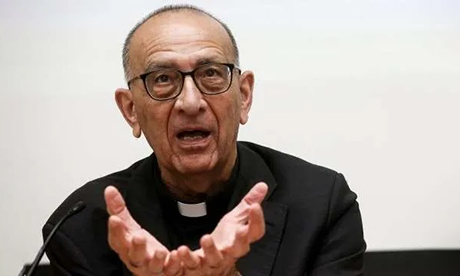Spain’s bishops have been accused of “complicity” in the “sexual violence” committed against children by a leading member of the country’s government.
The accusation has further damaged already strained Church-State relations.
“Too many times in our country, the Catholic Church has been complicit in covering up sexual violence. This must stop,” said Ione Belarra, Spain’s Minister of Social Rights.
She made the comment during an April 15 session of parliament. She was defending a new law extending the statute of limitations for sexual crimes against minors to the victim’s 35th birthday.
Approval of the new legislation, known as the “Rhodes Law”, has led to a showdown between Belarra and the bishops.
Catholic leaders wasted no time in condemning the minister’s remarks.
The Episcopal Conference of Spain (CEE) issued a letter accusing the left-wing politician of “sullying the activity of the Church”.
It said her comments before parliament were unacceptable and “do not correspond at all to reality”.
“The work (of the Church) can not be tarnished by the actions of some of its unworthy members, nor by the assessments of politicians who, in the grip of a rancid anti-clericalism, use the Church for political confrontation in a strategy of rupture and confrontation,” the CEE letter said.
Nonetheless, it said the bishops welcome the new law.
However, it cited recent figures from the ANAR Foundation (Aid to Children and Adolescents at Risk), that indicate that only 0.2% of all cases of sexual abuse in Spain between 2008-2019 “occurred in the context of religious activities”.
But the minister didn’t leave it at that. Instead, Belarra turned up the heat.
“Unlike other European countries where independent investigations have been carried out, Spain has not yet investigated the problem of pederasty in the Church in depth,” she said in a letter to Cardinal Juan José Omella of Barcelona, the CEE president.
Belarra’s letter was published on April 19, the very day the episcopal conference began a weeklong plenary assembly.
Archbishop Bernardito Auza, the papal nuncio to Spain, took the occasion to respond to the government minister’s accusations.
“No one can interpret a lack of transparency as a refusal to support what the pope says. No one can doubt the credibility of the Church in this matter,” he said in his address for the assembly.
Since the Socialist government of Prime Minister Pedro Sanchez took power in June 2018, relations between the Church and Spain’s civil authorities have experienced several upsets.
The formulation of new laws on euthanasia, private and public schools, and Church taxation have caused serious friction between the bishops and the Sanchez government.
But in recent months, it seemed that the two sides had struck a point of balance over the closure of places of worship during the COVID-19 pandemic, which has hit Spain hard.
That balance now appears to have been tipped.
